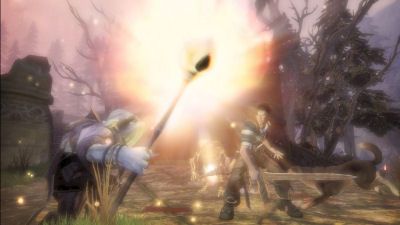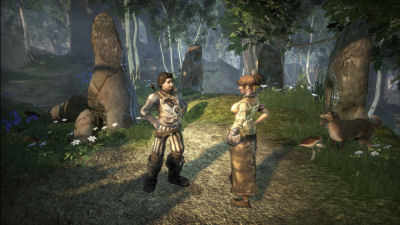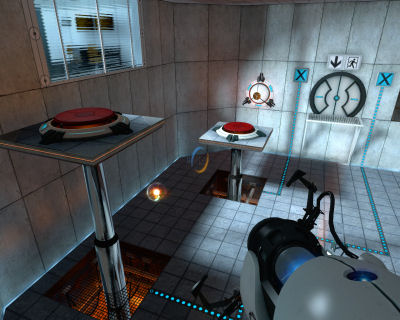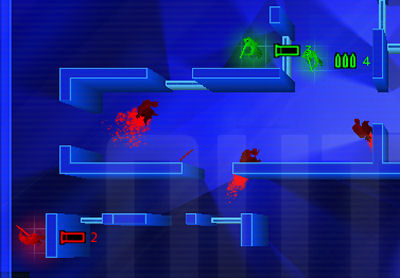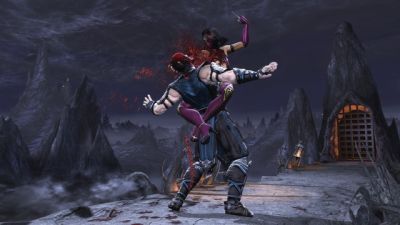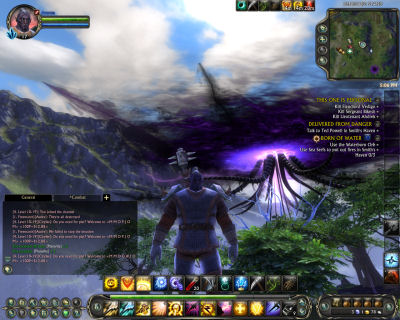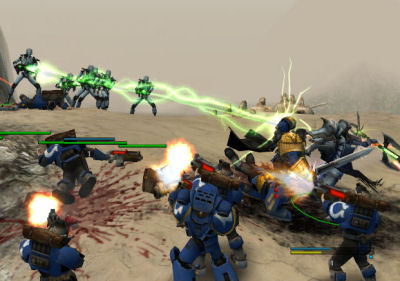Am I rite???
All jokes aside, I’ll apologize in advance for the extra-ranty tone of this log as I’m pretty disappointed in Team Bondi/Rockstar’s L.A. Noire. Not for the usual reasons though – I wasn’t expecting the next Grand Theft Auto here. No, I was so hyped for this game because some previews heralded it as the next evolution of the traditional adventure game, and even those that didn’t certainly made it seem that way. The detective angle also fit perfectly into my hopes for the game, conjuring up thoughts of Deja Vu, Police Quest, and Tex Murphy. Even all of those expectations aside, adventure game elements + Grand Theft Auto 4 sounded right up my alley. I even broke my new game embargo and bought this sucker close to release, bumping my back log to play it. So, where do I start?
In L.A. Noire you play a police detective in 1947 Los Angeles. I kind of wish the game had exploited the setting and the whole period noir vibe just a little more: more rainy nights, more sassy dames, more cartoon gangsters, hell I would have even settled for a crap-ton of cheesy, film noir style first person narration, but the game keeps it all fairly straightlaced. Anyway, you have to investigate and solve various cases which eventually start mingling together to form a cohesive plot relating to a larger conspiracy. You do this investigation by visiting crime scenes, looking for clues and interviewing witnesses, chasing those clues and accounts to more witnesses and suspects, looking for clues at their locations and interviewing them, sometimes with some action scenes thrown in, and eventually either interviewing the suspects one last time or having the case culminate in some sort of action that ends up wrapping things up. Cutscenes provide some extra story during and especially in between cases. That’s the most basic description I can give it – yes, it really is that formulaic and yes, thanks to the lack of variety in the cases it can indeed start feeling repetitious.
Adding to that explanation the whole thing feels almost exactly like Grand Theft Auto 4 – I realize it is the same engine, but no, down to a more granular level, the whole game feels very close to GTA4. Driving feels exactly like a slightly tighter controlling GTA4. Walking around locations in third person feels exactly like GTA4. Combat feels pretty much the same as well. You do all of these things quite a bit too. The focus of the game isn’t really on any of these things, however, it’s on the investigation and interrogation stuff and fittingly those two areas are where the game feels like the biggest departure from GTA and its ilk.
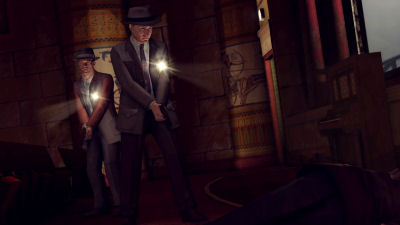
“Actor hunting in Hollywood.”
First we have crime scene investigations. You walk around in third person looking for items on the ground and other clues. Some of these items can be tricky to spot, bringing back the old point and click adventure game “pixel hunt” to some extent, though to its credit L.A. Noire does employ a couple of tricks to make this phase a little less frustrating: a vibration effect to alert you when you’re nearby new points of interest and a sound that plays when you come across clues you’ve already investigated. Another thing that helps is that music will play the entire time you’re in the investigation area (the game is still very much an open world so you can wander away from where you’re supposed to be quite easily) and will cease once you’ve found all of the relevant clues in the area. I say relevant because there are plenty of annoying red herrings lying around – maybe “red herrings” is too generous of a term to use, rather it is trash and other miscellaneous junk that you can, for some reason, interact with. I suppose the designers put this extraneous stuff in to make crime scenes a little less cut and dry. The real problem with these items is that occasionally they are actually relevant. I can think of at least two cases where a matchbook is an important clue instead of just the meaningless trash it represents another dozen times throughout the game, meaning you’ll probably want to examine every one you come across just in case. Doh. It wouldn’t be so annoying if there weren’t so many extra button presses involved. You don’t just pick up an item and instantly add it to your inventory, as it were, rather you often have to rotate it around and/or press the interact button a second time to further investigate the item. I’m guessing this was done to simply avoid the game feeling like a Heavy Rain style QTE fest. I suppose it succeeds… but it feels worse for it.
As I mentioned before there are also action sequences. Frequently at that. These range from typical GTA4 style car chases, fist fights, and fire fights, to item manipulation puzzles, foot chases, and even the odd platforming puzzle. These types of occasional action scenes help break up the monotony of the investigation stuff but GTA4 stuff (which I like – who doesn’t like spraying gangsters with a tommy gun?) aside, they often felt a little unsatisfying, and sometimes even frustrating. The stealth-like missions where you have to shadow someone at a distance were 100% pure, distilled anti-fun. Surprisingly many of the action sequences can even result in instant case failure and/or death which is pretty damn jarring when you compare it to the no-fail way interrogations work. In another nod to old adventure games though, the game seems to almost acknowledge that the action isn’t necessarily what you’re there for and if you fail a scene enough times you can simply skip it with no consequences. You can also easily skip the vast majority of driving around from location to location if you’d like. Alrighty then.
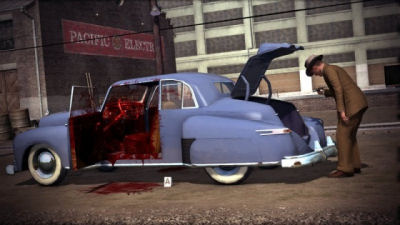
“What a mess – at least we can cross vampires off the suspect list!”
Finally, onto interrogations. These can take place either at an investigation scene or in an interrogation room at the station, and can range from simple information gathering to full on desperate attempts to get a confession from a suspect… but they all work the same way. There’s some (spoken) dialog between your character and the NPC which eventually leads into a clip that you’ll need to react to based on the person’s statement, tone, and notably facial expression. You react by choosing “Truth” which denotes that you believe the NPC was telling the truth, “Doubt” which denotes that you believe the NPC was lying or otherwise hiding something in their answer, or “Lie” which denotes that you believe the NPC is lying AND you have the proof to back it up. Your answers here can cause the interrogation to branch off (a little) sometimes granting you additional people or places to investigate, or straight up clues.
The whole interrogation system, which along with the new facial scanning technology was touted as the most unique thing in the game, actually holds my biggest complaints about it as well. First of all, there apparently is no way to fail an interrogation. If you choose poorly, the game goes on, which can sometimes cause you to miss vital clues and/or ultimately charge the wrong suspect. I personally thought this was a pretty nice touch and decided that no matter how bad I did on my first playthrough I’d accept all of the consequences and just go with the flow as in Heavy Rain. This became immensely unsatisfying, however, as even though you can’t necessarily fail an interrogation or a case as a whole the game is still extremely keen on letting you know when you’ve screwed up: when you react incorrectly in an interrogation a tone immediately lets you know, at the end of an interrogation it tells you how many you got right, and at the end of the case you’re given a 1-5 star rating based on how well you handled the investigation overall. If I’m supposed to just play through the case should it really be constantly slapping me down when I screw up? Worse yet, if I do choose to correct my actions I can’t – the only way to back out of a decision is to either restart the game before it saves again, doing the whole scene over again, or replay through the entire case. Wow. Make up your minds, Team Bondi! Do you want me to just keep going or do you want me to play to perfection?
Perhaps this wouldn’t burn me quite as badly if interrogations actually worked a little better. There’s nothing like doing badly and feeling like it isn’t your fault. While the new facial expression tech is indeed awesome I was surprised to find myself having an extremely difficult time spotting tells at times. Sometimes it is obvious, over the top even, but other times I was sure I was right and still got the reaction wrong. After I started doing so poorly I became more and more careful about choosing my reaction and still frequently got my guess wrong. Arrrrgh. Apparently it’s not just the mannerisms when answering you need to look out for as I had at least two NPCs answer very straight faced only to act shifty in their idle animations after the fact and turn out to be lying. Fair enough, but adding that into my bag of tricks still didn’t help matters much. I sometimes wondered if you weren’t just supposed to be trying to do what Phelps would do in the situation rather than base your decisions on what you, as the player, believed. It perhaps wouldn’t be as difficult if the difference between “Doubt” and “Lie” wasn’t so nebulous, never mind that those three choices don’t even clearly fit as appropriate reactions to every statement you’ll run across while interviewing, and that you’re not even presented with the option to ask a lot the questions that you, as a player, have probably already formed by the evidence you’ve gathered.
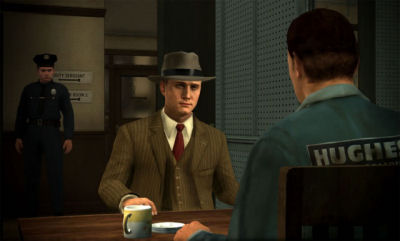
“Truth, I mean… lie! Wait, no, doubt!”
Delving further, the “Doubt” option freaked me out occasionally – doubt, to me at least, imparts a causal feeling, but a few times when I used it during interrogations my character went from mild mannered, friendly even, to TOTALLY FLIPPING OUT and screaming at the suspect. It totally took me out of the game the first time it happened and seemed a little out of character for Phelps. The “Lie” option is an even more interesting case study. Like I said, the line between “Doubt” and “Lie” wasn’t always so clear – fair enough, I take a look at my clues and maybe I don’t have the evidence to prove that the suspect is telling me a lie, or maybe I just don’t make that connection. In reality though, some of the logic between the NPC’s previous statement and the clues you have is a little on the fuzzy side and it can be hard to pick the right clue. Some of the “correct” clues you’re suppose to present as evidence are things that the NPC wouldn’t know so bringing it before them, saying what little your character says, wouldn’t actually convince them to start talking, for example. More problematic is that I often found the subject of the interview changing IN BETWEEN me picking the “Lie” option and having to present the evidence. WHAT THE FUCK? How was I supposed to KNOW I had the evidence if I didn’t know what I needed to provide evidence for until AFTER picking “Lie”? REALLY GUYS?
Here’s an example from The Naked City DLC case. I’ll try to be vague and not spoil it too badly:
I’m interrogating a guy, the husband of a friend of the victim. I had been told before by the victim’s house keeper that the victim was dating a man from San Francisco. I ask this guy if he knows of this fellow. He claims ignorance. Following me? At this point to branch to a new topic I have to call him a liar yet none of my evidence clearly says or even mildly suggests that they would know each other. The first time I played the case I think I chose “Doubt” instead of “Lie”. Regardless I got it wrong. The second time, after I do choose “Lie” he then admits that maybe he does in fact know him, but doesn’t know where he is from, stating that it might be New York. Evidence time! The correct answer is to present the victim’s house keeper’s statement that she knew of the guy and that she thought he might be from San Francisco. Wait a minute? I’m presenting evidence about where this boyfriend fellow is from? The original statement I called a lie was the NPC’s claim that he didn’t know of him, nothing to do with where he was from! Regardless, what did I just prove? That, in fact, he doesn’t know where the guy is from just like he stated he didn’t, because the house keeper says he’s from San Francisco? WTF? How does any of this make any sense? Let’s recap: I called him a liar, which means I have to present evidence to prove he is lying, yet I have none. Then it ends up being that the evidence I have to present isn’t even directly in response to the original statement I called a lie. Then I present a piece of evidence that essentially proves nothing – the guy claimed to be fuzzy on where this boyfriend fellow was from, and all we did was tell him that WE know where he was from. Take that! How is this helpful? Gah.
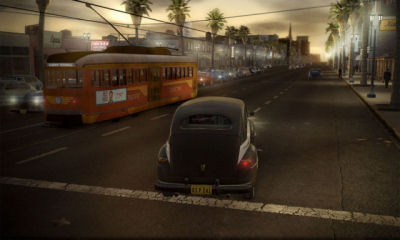
“Look familiar? Well it also feels familiar…”
It’s almost as if half of the time the “Lie” response isn’t so much to call out that person’s statement as a lie, as it is presented, as much as it is to scream “HEY YOU’RE A LIAR!” and to watch them squirm to see what they rattle on about. The evidence will have to be related to whatever they say AFTER you call them out. This is reinforced by the fact that, unlike with the other responses, you can back out of your “Lie” response. How bizarre! Are you supposed to just test this out on every question you ask? Really? Here’s another, more brief example from the same case: I’m told by an NPC I’m interviewing that a man I’m trying to track down doesn’t exist. If I choose “Lie” the topic suddenly turns to this NPC’s alleged role in a burglary which causes him to get defensive and challenge me on providing a list of stolen items. For evidence I can provided a list of stolen items recovered which all tie back to him. Fair enough on the challenge and evidence but the evidence is in no clear way related to the original accusation that I responded to! Ugh!
As a quick aside, I’ve played all of the DLC cases and they feel more or less identical in quality to the main cases and, if you’ve got them installed while playing through the campaign, fit fairly closely into the main case flow of the story. The one exception being Nicholson Electroplating which, despite acknowledging the events occurring up till then, fell into an awkward place at the end of the game that made switching back over to a relatively ho-hum arson case feel a little jarring.
Back to bitching. So let’s go over the ways that interviewing can be a major exercise in fail: facial expressions and other tells don’t always indicate the reaction as you’d expect them to > the line is blurry between doubt and lie, if any of the three options even seem suitable in the first place > when you do choose “lie” sometimes the clues don’t make a ton of sense, sometimes even relating to topics brought up AFTER choosing the option. Awesome… a point of failure along every step of the process. Good luck 5 starring every case without a walkthrough!
Indeed, I sucked at this game the first time through. I’d say half of my cases were 4 stars, while the rest were 2 or 3, with even one or two 1 star cases. Admittedly some of these scores might have been marked down a bit for driving like a maniac, but still. I decided to play through the game a second time with a walkthrough 5 starring every case so I could see how differently the game played out when I did everything “right” and I was, quite unexpectedly, sorely disappointed. The cases don’t really branch out as much as you might expect. In fact when you fail at an interview or you feel like you missed a vital clue somewhere you get the impression that if you had done better it would have turned out entirely different. In reality it seldom makes much of a difference. At best, some new events might take place if you do things differently, specifically if you branch conversations better in the interrogation parts or visit locations in a different order… but this seemed relatively rare.
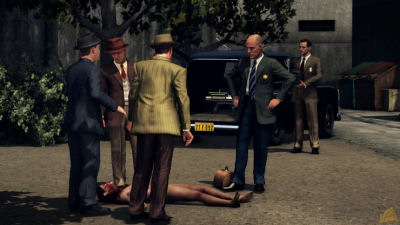
“This game has you doing more corpse fondling than your weird uncle Leroy.”
I admit that I started to get more into the game as the story started developing. Bondi and Rockstar did a good job at fleshing at the characters a little bit, at least enough for me to develop a fondness for your character, Phelps, and his various partners… even Roy, somehow. When the main plot started really coming together I was pretty much riveted. Even so I do take exception to the sometimes ham-fisted nature of the storytelling. First of all, there’s a twist later in the game that I really didn’t see coming. Normally twists like that are pretty cool but this time I felt like the game had been lying to me about who Phelps was and only offered the tiniest, most miniscule hints about what he might do and why up until that point. The finale of the game, on the other hand, you can see from miles away thanks to the entire story being heavy-handedly foreshadowed, almost spoiled even, through the numerous WWII flashbacks and newspaper scenes that you encounter FREQUENTLY over the entire course of the game. Some mystery…
Overall, despite all of my nitpicking, I actually enjoyed the game. I loved the graphics, the acting work, the music, the journal system, the 1940s setting, and the whole police procedural feel in general. For every triumph though it seems that there was also a misstep. It felt surprisingly GTA4-like for a game that so many people were quick to point out wasn’t that style of game yet, as feedback shows, it doesn’t really hold up as that kind of game either. When those new adventure game elements that I was so anxious to experience showed up I was surprised to see how many of the well-known negative adventure game tropes they brought with them: pixel hunting, out of place actions sequences, instant deaths/failures… and yet the positives weren’t nearly as strongly represented. I tried giving it a fair shake regardless of all of these things but they quickly started to dramatically affect my enjoyment level. I really hoped replaying it would help me appreciate the game’s intricacies more but it actually only served to reinforce my suspicions about many of its issues. With so long in development and two developers working (apparently quite poorly) together on the game it really makes me wonder how much of a potentially amazing game was somehow lost along the way.
As usual Xbox 360 screen shots stolen. PC version isn’t out yet!

